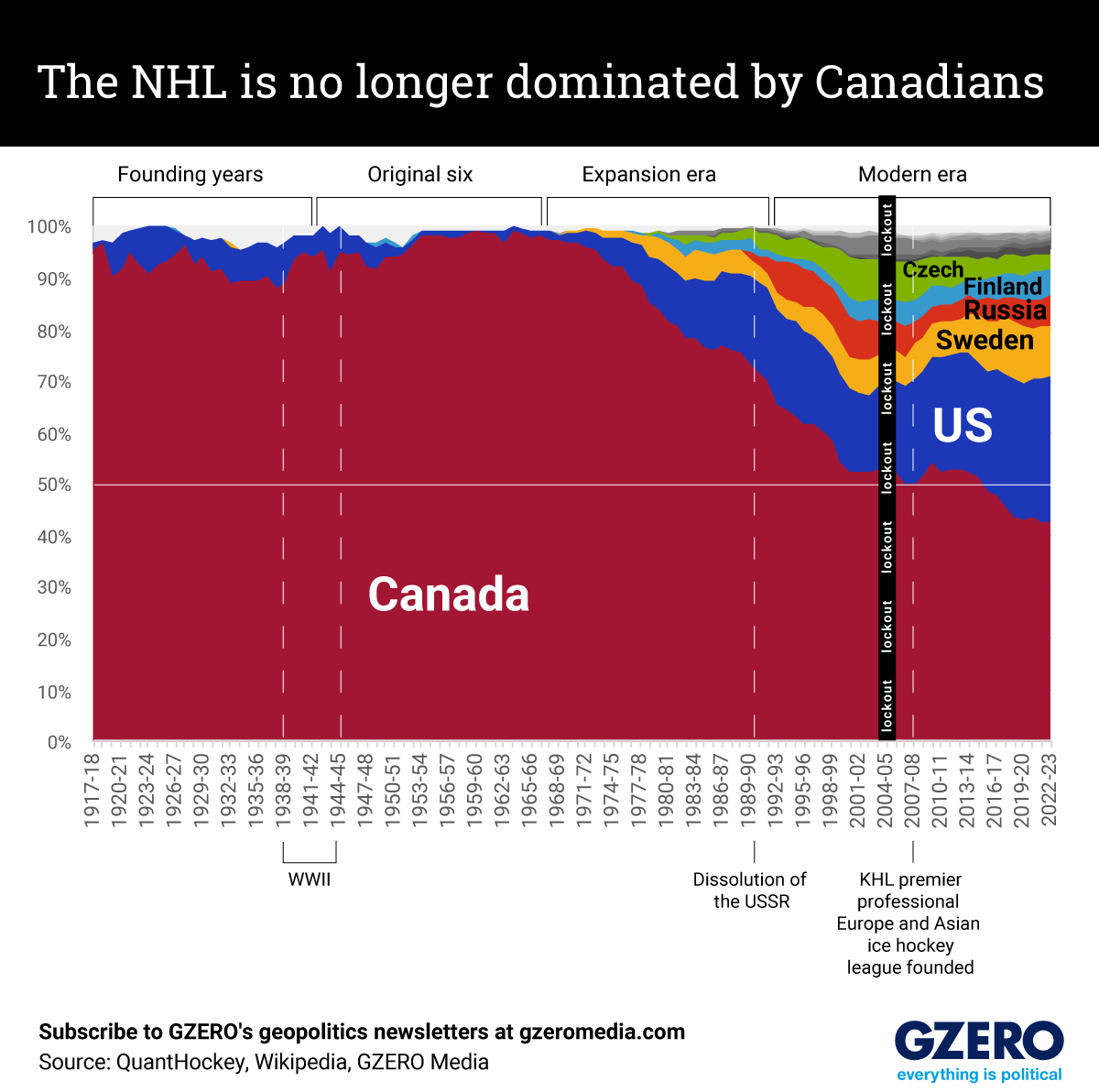The Graphic Truth: The NHL is no longer dominated by Canadians
Tuesday was the happiest day of the year for many Canadians: NHL opening night! Canadian fans may notice, however, that there are fewer and fewer Canadian players – part of an ongoing trend. In fact, the last time more than half the league hailed from Canada was 10 years ago, as ever-greater contingents from the US and Europe filled NHL rosters.
It’s a far cry from the early days of the league when the NHL was an all-Canadian affair. Nearly a century ago, in 1924, the Boston Bruins joined the NHL as the first American team. Even then, the number of Americans was tiny – less than 5% for most of the 1940s and 50s – and Europeans hardly even registered.
That all started to change in 1967 when the NHL added six new American teams. It opened slots for more American players, and a trickle of talent from Sweden, Finland, and later Czechoslovakia found its way to the New World as well.
But the biggest changes came after the collapse of the Soviet Union. Long Canada’s fiercest rival at Olympic-level hockey, the fall of the Iron Curtain coincided with a major influx of Russian and other former Soviet players.
But as our graphic above shows, these days the share of European players is falling, and Americans are the fastest-growing demographic in the league.
